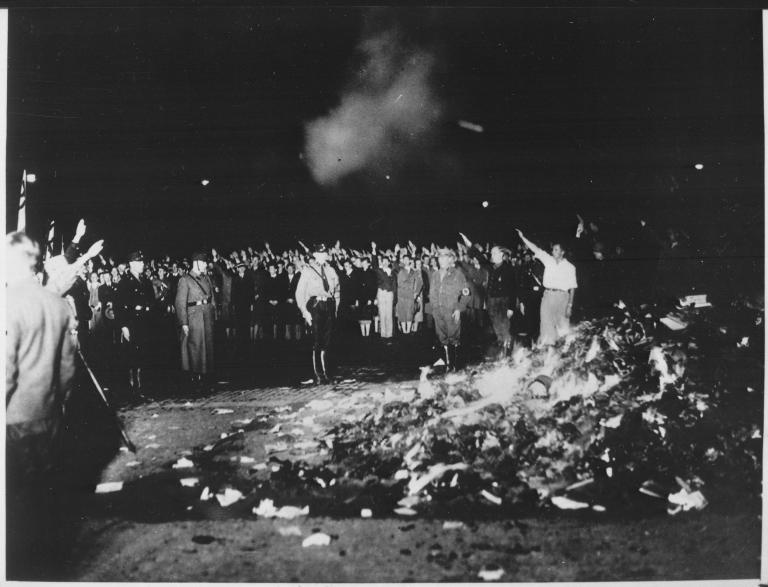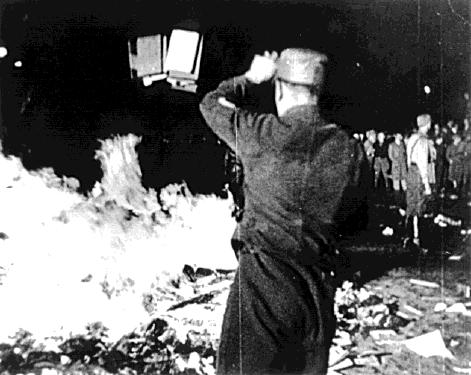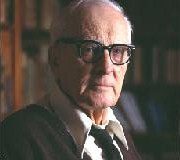
I notice that there are some (including the lamentable Salt Lake Tribune — which, I’m told, is the only newspaper in America to have succeeded in a campaign to deprive women of the vote — and this) who are ginning up controversy about the fact that Tina Descovich, a co-founder of the conservative organization Moms for Liberty and, it appears, a member of the Church of Jesus Christ of Latter-day Saints, is speaking (or has spoken) this year at Brigham Young University’s annual Education Week.
Some are mocking the organization’s name, saying that it’s not for “liberty” but, rather, for “book banning” and an assault on intellectual freedom. Several cite the Southern Poverty Law Center’s labeling of Moms for Liberty as an “extremist hate group.” They demand that BYU rescind her right to speak on its campus. (Remember, this is about “intellectual freedom.”) A few vow never to donate any money to the University — I wonder if they ever actually have donated — and others announce that allowing such a speaker justifies their decisions to renounce the Church.
Well, I think that I want to respond to this matter. First of all, I wish to observe that judgments issued by the Southern Poverty Law Center are not the final word on whether or not something is a “hate group,” and that they should not be taken as such. Consider, for example, this trio of articles, which offer a somewhat less than full-throated endorsement of the SPLC:
- The Washington Examiner: “Stop treating the Southern Poverty Law Center like it’s a respectable and responsible organization”
- The Heritage Foundation: “What Went Wrong with the Southern Poverty Law Center? The Southern Poverty Law Center has turned itself into a left-wing smear factory. How did it get that way and what’s the goal? We sat down with Daily Signal Managing Editor Tyler O’Neil to find out.”
- The New Yorker: “The Reckoning of Morris Dees and the Southern Poverty Law Center”
For the rest, I’ll use a passage in this 11 October 2023 article from USA Today, which is more general and which does not refer either to Brigham Young University or BYU Education Week or Tina Descovich, as a jumping-off point for what I want to say: “What’s behind the national surge in book bans? A low-tech website tied to Moms for Liberty”
I’m “triggered,” as the expression goes, by the passing comment that “Requests for Reconsideration or Review of Instructional Materials” are “commonly known as “book ban” requests.” And perhaps, of course, they commonly are so known. But, very plainly, they shouldn’t be. They are very different from actual book bans. (Please, for purposes of comparison, examine carefully the historical photos of real book bans above and below.)
School curricula for elementary, junior high, and high school classrooms allow for relatively little reading. Very few books can be included in the curriculum. Books that are not included — which inescapably includes the vast majority of published books — haven’t been banned. They simply haven’t been chosen for inclusion in the required classroom reading. Or they haven’t been approved for purchase by a school library. And, once again, even the largest school library has only a finite budget for buying books and only finite space on its shelves for displaying them, and even the largest school library will lack far more books than it houses.
My home library is quite extensive. (In self-defense, I sometimes remind my wife that my habit might have been cocaine, rather than books. In response, she observes that cocaine would occupy less space.) But I don’t have a single novel by 2023’s bestselling author, Sarah J. Maas, on my bookshelves, or my floors, or my kitchen table). Why not? Have I “banned” her? Hardly.
When I was in high school, I was required to read Thomas Hardy’s Tess of the d’Urbervilles and Alfred Lord Tennyson’s Idylls of the King. And I’m glad that I did. I have loved those books ever since. But we didn’t read Hardy’s Jude the Obscure or Far from the Madding Crowd or The Mayor of Casterbridge. I read those later. Nor did we read anything else by Tennyson, so far as I can recall. Not because those other works had been banned, but simply because the reading list was relatively short and other things had been included in their stead. Many years ago, I read and thoroughly enjoyed Ivanhoe, by Sir Walter Scott. Currently, at bedtime, I’m slowly reading his much less famous novel Quentin Durward. Neither had been banned. We read John Steinbeck’s Grapes of Wrath but, unless I’m misremembering, nothing by William Faulkner. If we had read a Faulkner novel, something would presumably have had to go. Should we have jettisoned The Grapes of Wrath? Tess of the d’Urbervilles?
My high school library in Southern California contained not a single work by Hugh Nibley. Had he been banned? No, but including his books in that public school library would, pretty obviously, have been quite inappropriate. On the other hand, it contained The Voyage of the Beagle and The Origin of Species, by Charles Darwin. Perfectly fine with me.

(Wikimedia Commons public domain)
I have not followed the efforts of Moms for Liberty and I had never before heard of Tina Descovich. From what I can tell, though, they are simply exercising their right as parents to exercise input on the curricular choices and the library purchases of the schools that their children attend. Do I necessarily agree with their book recommendations or their opposition to certain books? No. I know nothing of what they specifically favor or disfavor. But it doesn’t really matter, because I fully support their right to try to influence school and library administrators. And if anybody wants to seriously argue that parents shouldn’t have such a right then I say, in that case, let the public school system collapse. I don’t believe in tyranny.
If I oppose a particular attempt to bar a book from the curriculum or from the school library, I have the right as a citizen to take my opposition to the educational authorities and make my case.
A few years ago, there were calls in certain areas to drop Mark Twain’s Tom Sawyer and Huckleberry Finn from the curriculum because the racial attitudes recorded in those books grate on our delicate modern sensibilities. Had that occurred in my area, I would have mounted the barricades for a fight within minutes, not only because I regard them as great novels and view Twain as one of the greatest of our writers, but because condemning them as racist is, in my view, mind-numbingly stupid: They are brilliantly anti-racist books. And they provide a wonderful opportunity to discuss racism and other deeply important matters.)
Failure to include a book in a school curriculum or in a library is absolutely not banning the book. So long as publishing the book isn’t forbidden, it hasn’t been banned. This shouldn’t be hard to grasp. Obscuring the difference between banning a book and merely failing to include it in a public school is sloppy, at a minimum, and — arguably — dishonest.

(b. 27 March 1910; d. 24 February 2005)
Wikimedia Commons public domain image
This article was posted today on the website of the Interpreter Foundation: Hugh Nibley Observed: “A Mighty Kauri Has Fallen: Hugh Winder Nibley (1910–2005),” written by Louis Midgley:
“Even though what I offer is a personal remembrance, I hope that what I have to say will in some measure speak both for and to others whose lives have or should have been influenced by him. Obviously, others have their own stories of how and why they came to know (or know of) Nibley and thus how they were influenced by his example and scholarship. Even though they may never have known him directly, many came to appreciate him through what he wrote, the talks he gave, or the classes he taught. It may be that some who did not know him personally will discover that, without even being aware of what was happening, they were influenced by Hugh Nibley. I have discovered that each person who knew him, even through his talks or writings, found or fashioned a different persona—one often suited to his or her own biases, needs, and longings.”
Part of our book chapter reprint series, this article originally appeared in Hugh Nibley Observed, edited by Jeffrey M. Bradshaw, Shirley S. Ricks, and Stephen T. Whitlock. For more information, go to https://interpreterfoundation.org/books/hugh-nibley-observed/.

And, finally, I close with some material from the Christopher Hitchens Memorial “How Religion Poisons Everything” File™:
But there is hope in Nicaragua! “Imagine!” as John Lennon would have put it: “Nicaragua forces 1,500 churches, nonprofits to close”













